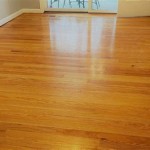Tile Flooring in San Antonio, TX: A Comprehensive Guide
Tile flooring remains a highly sought-after choice for San Antonio homeowners and businesses alike, offering a blend of aesthetic appeal, durability, and ease of maintenance particularly well-suited for the region's climate and lifestyle. The popularity of tile flooring stems from its versatility and the vast array of options available, making it adaptable to diverse architectural styles and functional requirements. In San Antonio, where both traditional and contemporary designs flourish, tile flooring provides a practical and visually pleasing flooring solution.
This article provides a comprehensive overview of tile flooring, covering its various types, benefits, installation considerations, and maintenance practices relevant to the San Antonio area. It explores the nuances of selecting the right tile for specific needs, ensuring longevity, and maximizing the investment in tile flooring.
Understanding the Types of Tile Flooring
Selecting the appropriate tile type is crucial for achieving the desired aesthetic and functionality. The San Antonio market offers a wide range of tile materials, each with unique characteristics and performance attributes. The most common types include ceramic, porcelain, natural stone, and glass, along with other specialized options.
Ceramic Tile: This is a widely used and cost-effective option. Ceramic tiles are manufactured from clay, hardened by firing at high temperatures. They are available in glazed and unglazed varieties. Glazed ceramic tiles offer water resistance and are easy to clean, making them suitable for bathrooms, kitchens, and entryways. Unglazed tiles, while porous, can provide a rustic appearance and excellent slip resistance. Ceramic tiles are generally less dense and less durable than porcelain tiles, making them more appropriate for areas with lighter foot traffic.
Porcelain Tile: Porcelain tiles are a denser and more durable alternative to ceramic. They are made from a finer clay and fired at higher temperatures, resulting in a tile that is less porous and more resistant to water absorption, staining, and scratching. Porcelain tiles are well-suited for high-traffic areas such as hallways, commercial spaces, and outdoor patios. Due to their superior performance, they are often a preferred choice in San Antonio, where temperature fluctuations and potential for moisture exposure are concerns.
Natural Stone Tile: Natural stone tiles, including granite, marble, slate, limestone, and travertine, offer a luxurious and unique aesthetic. Each stone has its own distinct color variations, veining patterns, and texture. Natural stone tiles require sealing to protect against staining and water damage. Maintenance requirements vary depending on the type of stone; for example, marble requires more diligent care compared to granite. Natural stone installations can significantly enhance the appeal of high-end residential and commercial properties within San Antonio, imparting a sense of timeless elegance.
Glass Tile: Glass tiles add a touch of sophistication and modernity to any space. They are available in a wide array of colors, shapes, and sizes, and can be used as accent pieces or for entire walls and floors. Glass tiles are primarily used in bathrooms and kitchens, often as backsplashes or decorative accents. They are resistant to staining and water damage but can be susceptible to scratching, making them more suitable for low-traffic areas.
Beyond these major categories, specialized tile types exist, such as quarry tile, suitable for industrial and commercial kitchens due to its high durability and slip resistance, and mosaic tile, utilized for creating intricate patterns and artistic designs. The selection process involves considering the tile's properties in relation to the specific application and desired aesthetic.
Key Benefits of Tile Flooring for San Antonio Residents
Tile flooring offers a compelling set of advantages, making it a popular choice for property owners in San Antonio. These benefits include durability, low maintenance, design versatility, and suitability for the local climate.
Durability and Longevity: Tile is known for its exceptional durability, resisting wear and tear even in high-traffic areas. Properly installed tile can last for decades, making it a cost-effective flooring solution in the long run. Porcelain and natural stone tiles are particularly resilient, withstanding heavy foot traffic and resisting scratches, dents, and fading. The durability of tile flooring makes it a sound investment for both residential and commercial properties facing the demands of daily use.
Ease of Maintenance: Tile flooring is remarkably easy to maintain, requiring only regular sweeping, vacuuming, and occasional mopping. Unlike carpet, tile does not trap dust, allergens, or pet dander, making it a hygienic flooring option. Stain resistance is a key advantage, especially with glazed ceramic and porcelain tiles. Spills can be easily wiped away without leaving permanent marks. For natural stone tiles, periodic sealing is essential to maintain their stain resistance and protect their aesthetic appearance. The inherent low-maintenance nature of tile flooring contributes to a cleaner, healthier indoor environment.
Design Versatility: Tile flooring allows for extensive design customization, with a wide variety of colors, patterns, sizes, and textures available. Tile can mimic the look of other materials, like wood or stone, offering aesthetic flexibility at a lower cost and with greater durability. Intricate patterns can be created using different tile layouts and grout colors. This design versatility makes it possible to tailor the flooring to match any desired style, from traditional to contemporary. In San Antonio, tile flooring is used to enhance the unique architectural character of diverse properties.
Suitability for the San Antonio Climate: San Antonio experiences hot summers and mild winters, making tile an ideal flooring choice. Tile flooring remains cool underfoot, providing comfort during the warmer months. It can also be used in conjunction with radiant heating systems to provide warmth during the cooler months. Tile is resistant to humidity and moisture, making it suitable for bathrooms, kitchens, and outdoor spaces. Additionally, tile’s resistance to fading and water damage makes it an excellent choice for sunrooms and patios, where exposure to the elements is common.
Installation Considerations for Tile Flooring in San Antonio
Proper installation is critical to the performance and longevity of tile flooring. The installation process involves several steps, including subfloor preparation, tile layout, setting the tile, grouting, and sealing (if necessary). Hiring a qualified professional installer ensures that the work is done correctly, minimizing the risk of future problems.
Subfloor Preparation: The subfloor must be clean, level, and structurally sound to provide a stable base for the tile. Any imperfections or unevenness in the subfloor can lead to cracking or shifting of the tiles. For concrete subfloors, cracks should be repaired, and the surface should be leveled using a self-leveling compound. For wood subfloors, it is essential to ensure that the floor joists are adequately supported and that the plywood or OSB subfloor is thick enough to prevent flexing. In San Antonio, where older homes often have uneven floors, careful subfloor preparation is particularly important.
Tile Layout and Design: Planning the tile layout is essential for achieving the desired aesthetic and minimizing waste. The layout should consider the dimensions of the room, the placement of fixtures, and the desired pattern. Starting with a center line and working outwards ensures a symmetrical and balanced appearance. When using patterned tiles, it is important to carefully align the patterns to create a cohesive look. Professional tile installers can provide valuable guidance on tile layout and design, helping homeowners achieve the desired results.
Setting the Tile: The correct type of mortar or thin-set adhesive must be used to ensure a strong bond between the tile and the subfloor. The mortar should be mixed according to the manufacturer's instructions and applied evenly using a notched trowel. The size of the notch should be appropriate for the size and type of tile being installed. Each tile should be pressed firmly into the mortar, ensuring proper adhesion and alignment. Spacers should be used to maintain consistent grout lines. Factors such as temperature and humidity can affect the curing time of the mortar or thin-set adhesive.
Grouting: Grouting fills the spaces between the tiles, providing structural support and preventing water from penetrating the subfloor. The grout should be mixed according to the manufacturer's instructions and applied using a grout float, pressing it firmly into the grout lines. Excess grout should be removed with a damp sponge. The grout must be allowed to cure properly before the tile floor is used. The choice of grout color can significantly impact the overall appearance of the tile floor.
Sealing: Natural stone tiles and grout should be sealed to protect them from staining and water damage. The sealer should be applied according to the manufacturer's instructions, ensuring complete coverage. Regular resealing may be necessary, depending on the type of stone and the level of traffic.
In addition to these installation considerations, it is important to comply with local building codes and regulations. Hiring a licensed and insured tile installer ensures that the work is done to code and that any potential problems are addressed promptly and professionally. The selection of a reputable installer provides peace of mind and ensures a successful tile flooring project.

Mexican Tiles In San Antonio Saltillo Floors Shipped Rustico Tile

Daltile Tile Stone Wall And Flooring In San Antonio Tx Slab Center

Tile Flooring In San Antonio From Carlson S

Tile Flooring In San Antonio Or Dallas Fort Worth From Cw Floors

Flooring Services San Antonio Tx Military First Responder Discounts

Tile San Antonio Tx Metro Wholesale Flooring Design Center

American Tile Stone Updated July 2025 12625 Wetmore Rd San Antonio Building Supplies Phone Number Yelp

Terrazzo Restoration San Antonio Tile Stone Service

Shop Shaw Floors Luxury Vinyl Flooring In San Antonio The Barton Co Carpets

Reeso Tile Importers Updated July 2025 27 Photos 10 Reviews 1022 Vance Jackson Rd San Antonio Tiling Phone Number Yelp







